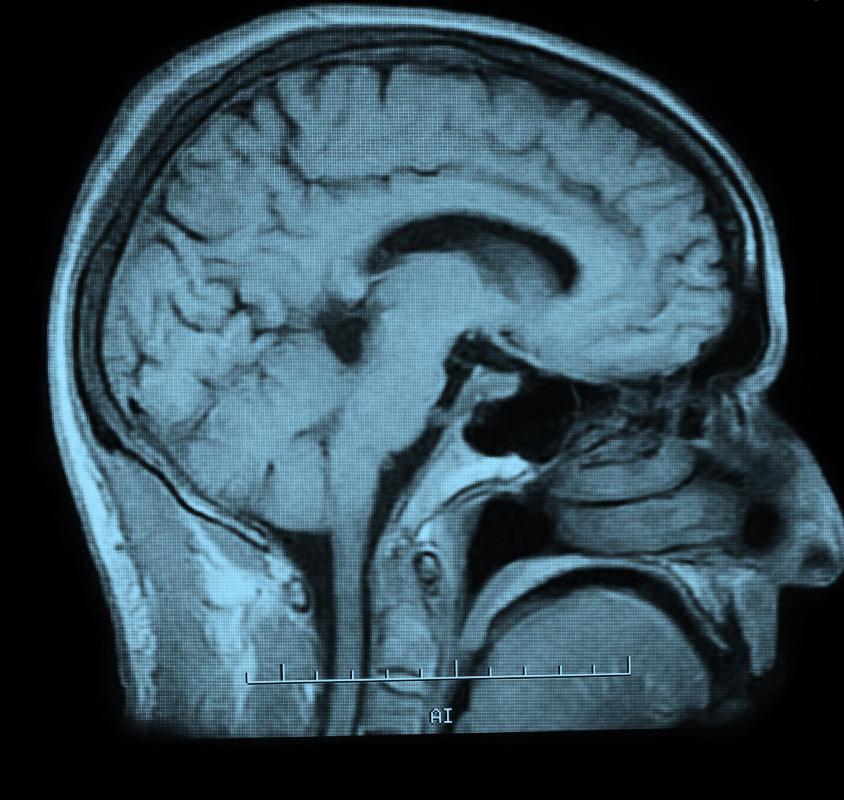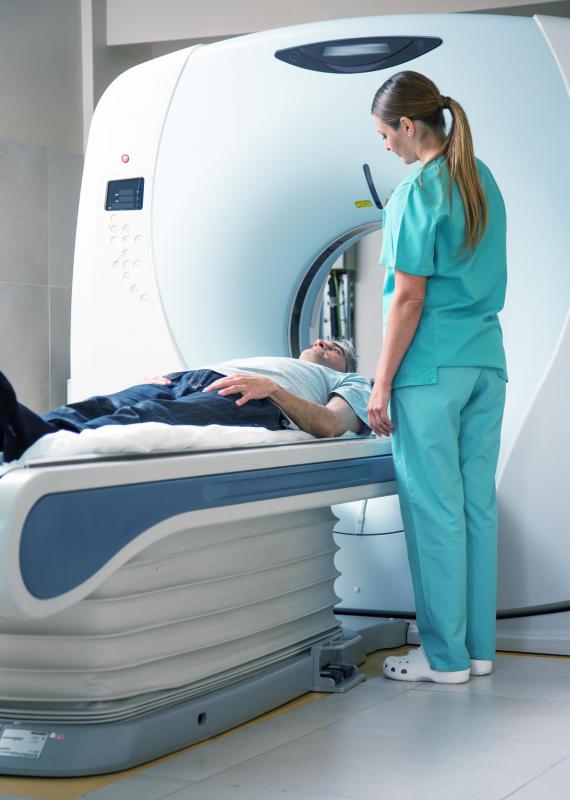At EasyTechJunkie, we're committed to delivering accurate, trustworthy information. Our expert-authored content is rigorously fact-checked and sourced from credible authorities. Discover how we uphold the highest standards in providing you with reliable knowledge.
What is Cognitive Science?
Cognitive science is an interdisciplinary field concerned with the mechanics of cognition, or how the mind and brain work to acquire and manipulate knowledge. It includes study of the human mind, animal mind, and artificial intelligence. Because cognition forms the very basis of life’s organizational and survival mechanisms, cognitive science encompasses a large network of key disciplines. The various branches of this field include neuroscience, physiology, psychology, anthropology, linguistics, physics, artificial intelligence or computer science, and philosophy.
There is a popular adage about three blindfolded men describing an elephant by the parts of it each man can feel. None of the descriptions sound related, but when the blindfolds are removed, the parties can see they were all describing different parts of the same animal. Cognitive science is the cooperative effort that realizes that each different discipline reveals some aspect of intelligence that adds to the overall understanding of how the mind manifests through the brain. As different disciplines gain understanding, they can shed light on questions that lie in other disciplines. The overall goal of developing theories of cognition is therefore best served by the interdisciplinary nature of the field.

Modern imaging technology has helped cognitive science make significant inroads. Computer-Assisted Tomography (CAT) scans, Positron Emission Tomography (PET), and Magnetic Resonance Imaging (MRI) have allowed scientists to map the brain in new ways. Specific areas of the brain can be linked to anatomical location, creating a better understanding of mind/body correlations.

Though the desire to understand the mind and cognition dates at least as far back as the ancient Greek philosophers, it was not until artificial intelligence gained headway that an interdisciplinary field of cognitive science evolved. The term was coined relatively recently, in 1973, by Christopher Longuet-Higgins. The Cognitive Science journal followed in 1977, and the Society for Cognitive Science was founded two years later.

Today, cognitive science is an exciting field with promising benefits for all of humanity. As scientists come to understand the nature of cognition, we learn, among other things, how to better apply teaching methods, advance useful robotics in computer sciences, and through neuroscience, take a step closer to understanding the brain. This could eventually result in recovery from damage suffered by stroke or other trauma, or provide solutions to diseases like Alzheimer’s or schizophrenia. As we head forward, it seems clear that the benefits of this field are potentially as life-supportive as cognition itself.
AS FEATURED ON:
AS FEATURED ON:













Discussion Comments
@SkyWhisperer - I believe that you’re raising the issue of the soul. I don’t know if that would fall in the domain of cognitive science, but the whole mind and brain distinction would.
I think that they are one and the same, so I don’t personally subscribe to the ghost in the machine theory. I believe that when you draw upon all the disciplines that make up cognitive science, like neuroscience, physiology and psychology, you can piece together the answers to your questions about the mind and the brain.
I think in cognitive science perception and the powers of the mind have become a kind of holy grail.
What I mean by that is that some philosophers have seen the mind and the brain as two separate things, leading some to speculate about the proverbial “ghost in the machine.”
Does the mind use the brain? Is the mind a product of the brain? The total seems to be greater than the sum of its parts.
I even saw this program on television where this scientist did an autopsy on Einstein’s brain. He sliced it and diced it, looking for clues to Einstein’s genius. He got nowhere, after many years of fruitless search.
I think when anthropologists link up their research with neuroscientists, the results can be very interesting. Cognitive science books which explore more than one aspect of a subject do this sometimes and I really like it when they do.
Because that can attempt to answer some things about the universality of human behavior and our history, from before we started recording it properly. What do we all actually have in common?
It's probably both more and less than most people think.
I guess as a writer, this kind of thing really fascinates me. If you need to speculate on new worlds, or old cultures, you need to have some ground rules in place about how the brain actually works.
You know, I've done a degree with a double major in anthropology and philosophy and it never occurred to me that I was really just doing one subject: cognitive science.
It's nice to have those two areas of research acknowledged as science as well. Often I think people look down on them because you can't just dump a powder into a liquid, and see it turn blue. You have to poke around in areas where there aren't any clear answers and try to be as thorough as you can in your research and analysis, because there may be no definitive answer.
But, just because there isn't a definitive answer doesn't mean that what can be discovered isn't relevant, or interesting.
Cognitive science research, in all it's various forms, should be encouraged and celebrated, rather than taken up as an easier option than doing hard science or mathematics.
Post your comments